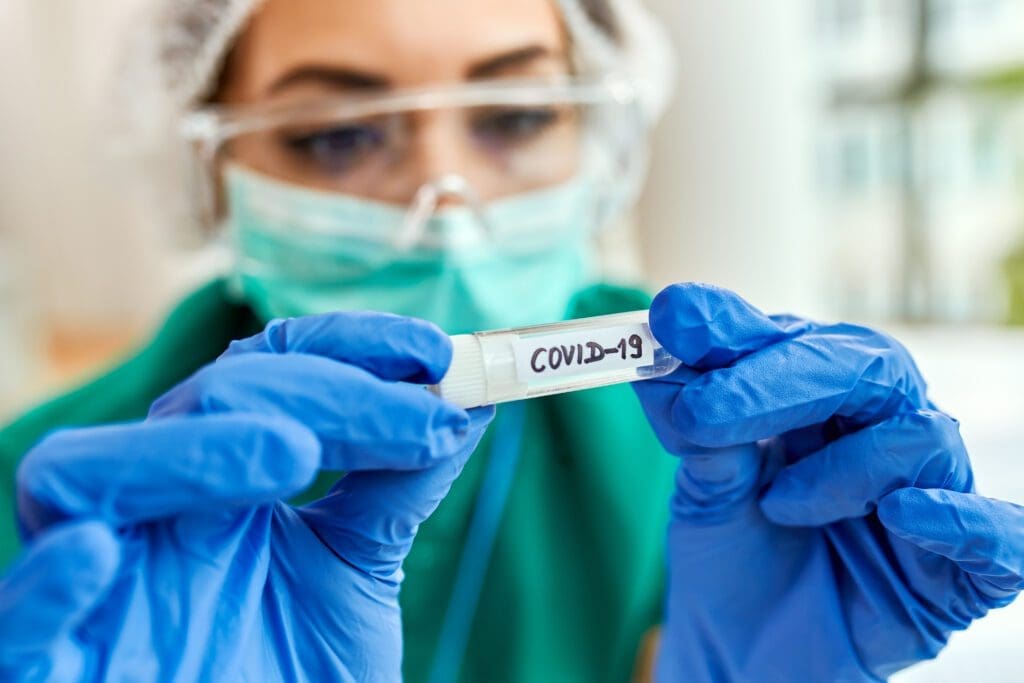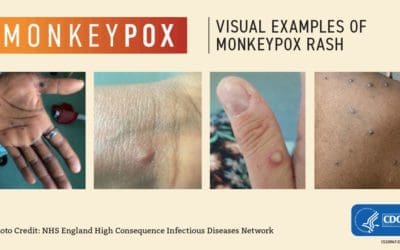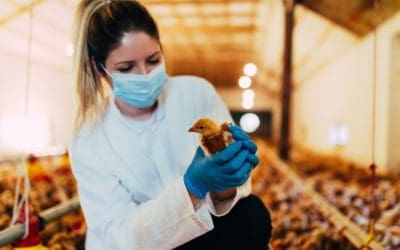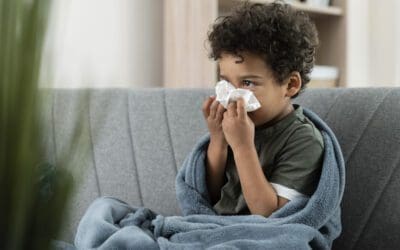Summer 2024 COVID-19 Surge: What You Need to Know

Four years after the start of the COVID-19 pandemic, the virus is far from gone. The U.S. is currently experiencing a major COVID-19 surge.
A high or very high level of COVID-19 virus is being detected in wastewater in almost every state, including Missouri, according to data from the Centers for Disease Control and Prevention.
At Jackson County Public Health, we’re committed to keeping our community safe. As part of this effort, we offer free COVID-19 test kits that you can pick up at any time during business hours. Whether you’re experiencing symptoms or simply want peace of mind, these test kits are available to you.
Read below to find answers about the latest variant of COVID-19.
What You Need to Know
The Surge and What’s Driving It
Right now, nearly every metric the Centers for Disease Control and Prevention (CDC) uses to track COVID-19 is on the rise—hospitalizations, emergency room visits, and positive test percentages. This surge is being fueled by a group of variants known as the FLiRT variants, which include KP.3.1.1, KP.3, and LB.1.
Monitoring COVID-19 Activity Through Wastewater
One of the tools the CDC uses to gauge COVID-19 activity is wastewater testing. By analyzing sewage, the CDC can detect traces of infectious diseases within communities.
As of August 19th, Missouri is one of 35 states experiencing “very high” levels of COVID-19 activity based on wastewater viral levels.
The Most Common Variant: KP.3.1.1
Currently, the most common COVID-19 variant in the United States is KP.3.1.1, according to the CDC. This variant accounts for nearly 28% of COVID-19 cases nationwide, followed by KP.3 and LB.1.
Recognizing the Symptoms of the Latest Variant
COVID-19 symptoms have become more consistent with these newer variants. The CDC reports that the most common symptoms include:
- Fever or chills
- Cough
- Shortness of breath or difficulty breathing
- Sore throat
- Congestion or runny nose
- New loss of taste or smell
- Fatigue
- Muscle or body aches
- Headache
- Nausea or vomiting
If you fall into a high-risk category, you may experience more severe symptoms, so it’s crucial to monitor your health closely.
If you’re experiencing COVID-19 symptoms, take precautions to avoid spreading it to those around you. The CDC recommends staying home and away from others until — for at least 24 hours — your symptoms have improved and you have not had a fever (without fever-reducing medication)
Even after you begin to feel better, you may still be contagious. Continue to take extra precautions for the next five days, such as physical distancing and masking, to help reduce the risk of spreading the virus to others.
The Upcoming Vaccine
A new vaccine tailored to the dominant COVID-19 variants is expected to be released in September.
Experts advise those in low-risk groups or who have recently had COVID-19 to wait for this updated vaccine. However, if you’re at higher risk, haven’t yet received the previous vaccine, or have upcoming activities that may increase your exposure, it might be beneficial to get the current vaccine now.
Once available, anyone in the metro is welcome to come and get vaccinated against COVID-19 for free at our clinic at 3651 NE Ralph Powell RD in Lee’s Summit; we just ask you to make an appointment.
The vaccines will be free through the end of 2024. No copay is needed. If you have insurance, we will run it.
Once the updated COVID-19 vaccine is available at our clinic, we will announce it on our website and social media. If you would like to be notified by email once the vaccine is in stock, join our email list using the form below.
Jackson County Public Health is here to help you navigate these challenging times. Remember: free COVID-19 test kits are available at our department, so you can stay vigilant and protect yourself and your loved ones. If you’re currently experiencing symptoms, take precautions to avoid getting others sick. For more information, please visit our website or contact us directly.
Together, we can continue to keep our community safe and healthy.
—
Information obtained from the Centers for Disease Control and Prevention.
Archives
- February 2026 (1)
- December 2025 (1)
- November 2025 (2)
- September 2025 (1)
- July 2025 (2)
- June 2025 (3)
- April 2025 (2)
- January 2025 (2)
- December 2024 (1)
- September 2024 (2)
- August 2024 (2)
- July 2024 (1)
- June 2024 (1)
- February 2024 (1)
- July 2023 (1)
- March 2023 (1)
- October 2022 (1)
- September 2022 (1)
- August 2022 (1)
- July 2022 (2)
- June 2022 (2)
- May 2022 (1)
- April 2022 (4)
- March 2022 (1)
- February 2022 (1)
- January 2022 (1)
- December 2021 (4)
- November 2021 (3)
- September 2021 (2)
- August 2021 (3)
- July 2021 (2)
- June 2021 (1)
- May 2021 (2)
- March 2021 (1)
- December 2020 (6)
- November 2020 (8)
- October 2020 (4)
- September 2020 (7)
- August 2020 (3)
- July 2020 (11)
- May 2020 (2)
- April 2020 (4)
- March 2020 (1)
Categories
- Communicable Disease (5)
- Clinical Services (19)
- Clinical Servcies (1)
- Health Promotions (74)
- Emergency Preparedness (8)




